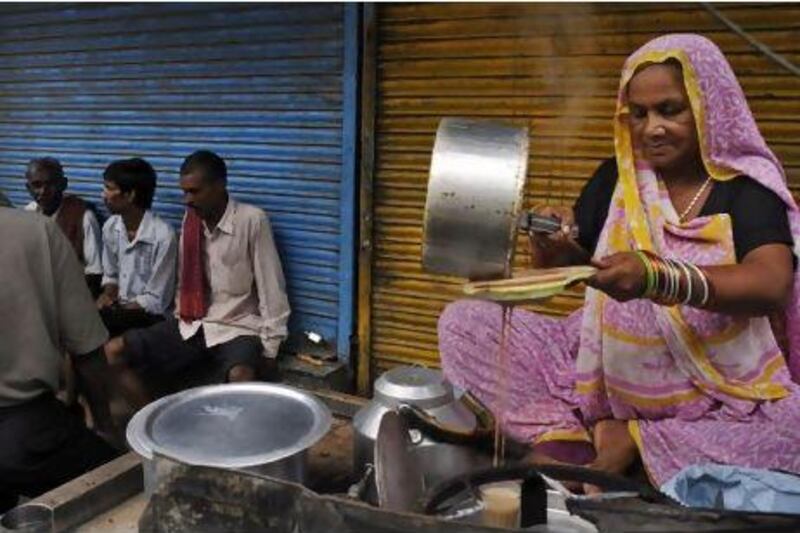NEW DELHI // India is the second-largest tea producer in the world, but Indians themselves do not drink much tea at all - a fact that Indian tea associations would like to change by getting the government to declare tea the national beverage.
India is the world's largest consumer of black tea - about 850 million kilograms a year, according to 2009 figures from the UN's Food and Agriculture Organization, but ranks only 53rd on a per person basis. Indians drink an average of only 300 cups a year, compared with 800 in Britain and 2,400 in the UAE - the world's biggest drinkers of tea.
Kaushik Halder, the secretary of the Tea Board of India, thinks this disparity is outrageous. He hopes to encourage Indians to drink tea more often by lobbying the government to declare it the national drink.
"Anything national has its own importance. It changes how people look at it," said Mr Halder.
He compared the potential of tea's image to India's national animal, the tiger.
"When you look at a tiger, you are not just seeing a tiger; if you know it is the national animal of India then you look at it differently. It will be the same with tea," said Mr Halder.
Tea consumption is growing about 3 per cent a year, but with a booming economy driving a rapid rise in affluence, drinks such as tea, fruit juices and soft drinks face fierce competition from soft drinks, especially among the young.
The idea to declare tea the national drink was first voiced in 2004 at a meeting of plantation owners in Delhi. Retailers, however, have shown little interest in the idea. Instead, the focus has been on promoting tea as a health drink.
That has failed to attract a key demographic - young people.
"One of the reasons for the low per capita consumption is competition from other beverages, particularly aerated drinks," said Bidyananda Barkakoty, the chairman of the North-East Tea Association.
"Youth are attracted more towards aerated drinks, which are not good for the health."
Tea is mostly a twice-a-day ritual in India, usually drunk in the morning and evening, more for the caffeine than for refreshment.
Tareef Ali operates a roadside tea stand in New Delhi.
"Business is good," he says with a smile. But by 4.30 in the afternoon, however, business is nonexistent. "Most Indians only drink tea in the mornings," he explained. The peak time at his stall is until 6am.
"Everyone drinks tea, but Indians don't drink tea for refreshment," said Mr Ali. "For that, you want something cold, like water or a Pepsi."
A typical cup of Indian "chai" is made with black tea, large quantities of sugar and vast amounts of fatty, almost buttery, buffalo milk or in some areas, actual butter and salt. While comforting on a cold morning, the drink is not particularly refreshing.
Mr Barkakoty is working to change the perception of tea in the Indian state of Assam, the largest tea producer in the country, by asking the government to promote the creation of chai bars, something akin to coffee shops, across the country. While Indians prefer their milky chais, other - more refreshing - varieties such as iced tea or green tea have yet to catch on.
Tea prices collapsed in the early 2000s when China drastically increased production and passed India as the world's largest producer.
"The tea industry in India only recently came out of a slump," said Azam Monem, the director of marketing with Williamson Magor in Kolkata, one of the largest tea plantation groups in India.
Tea growers are still feeling the aftershocks of decreased prices.
This month, tea workers in Assam dumped 200 tonnes of tea leaves on the road, blocking one of the main roads in the mountainous state in the far north-east. They were angry that their tea was fetching just 3 to 4 rupees (22 to 30 fils) a kilogram. It costs about 10 rupees a kilogram to produce.
But Mr Monem believes the solution ultimately lies in Indians rekindling their love for tea: "Tea should be available no more than an arms' length from desire."





